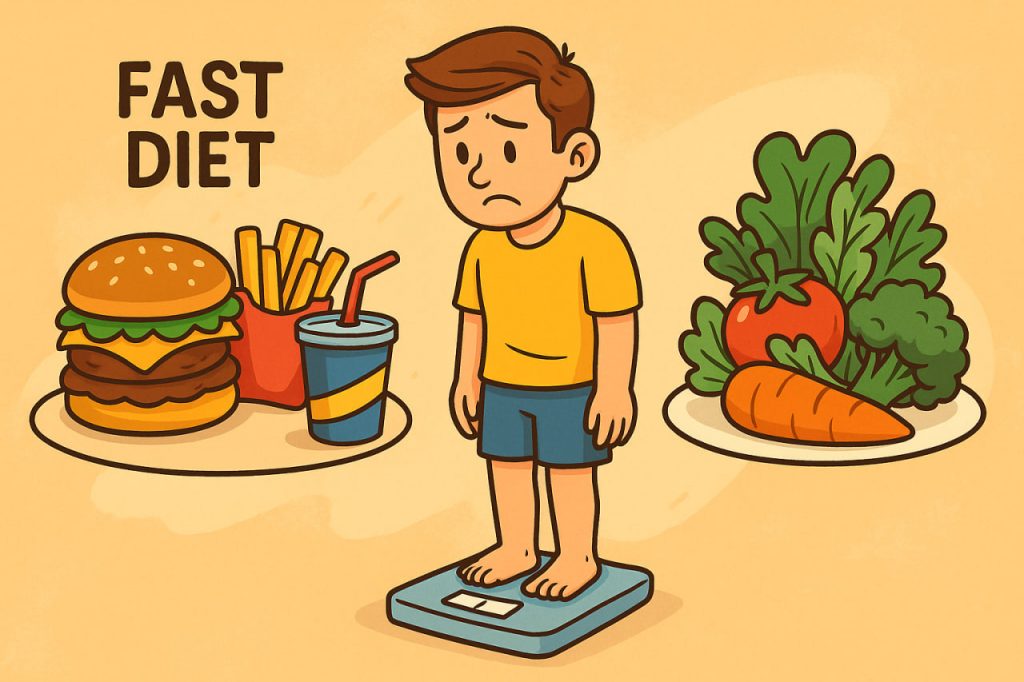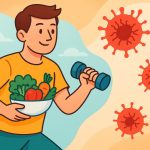Crash diets, often called “fast diets,” promise quick weight loss in a very short time. While they may seem appealing for those seeking rapid results, such diets can be harmful to both physical and mental health. Instead of supporting long-term well-being, they often create a cycle of temporary weight loss followed by weight regain, along with potential health risks.
Nutritional Deficiencies
Crash diets usually involve severe calorie restriction or cutting out entire food groups. This often leads to a lack of essential nutrients such as vitamins, minerals, and proteins. Nutrient deficiencies can cause fatigue, weakened immunity, brittle hair and nails, and even long-term organ damage if practiced repeatedly.
Muscle Loss Instead of Fat Loss
When the body does not get enough calories, it starts breaking down muscle tissue for energy instead of burning fat efficiently. This leads to a decrease in muscle mass, slowing down metabolism. As a result, once the diet ends, weight is regained quickly—often in the form of fat rather than muscle.
Metabolic Slowdown
Crash diets signal the body to enter “survival mode.” Metabolism slows down to conserve energy, making it harder to maintain weight loss. Over time, this can lead to a yo-yo effect—rapid cycles of losing and regaining weight—which is more damaging to health than gradual weight management.
Negative Impact on Mental Health
Severe dietary restrictions often create stress, irritability, and mood swings. Many people also experience food cravings, binge eating, and guilt, which can damage their relationship with food. Long-term reliance on crash diets can contribute to eating disorders and poor self-image.
Health Risks
Extreme diets can strain the heart, kidneys, and liver. They may cause dehydration, electrolyte imbalances, and digestive issues. In some cases, crash diets increase the risk of gallstones, anemia, or hormonal imbalances, especially when combined with rapid weight loss.
Sustainable Alternatives
Instead of crash diets, experts recommend gradual and balanced approaches to weight management. A diet rich in whole foods, fruits, vegetables, lean proteins, and whole grains, combined with regular physical activity, leads to healthier and more sustainable results. Consulting a healthcare professional or nutritionist ensures safe and personalized guidance.
Conclusion
“Fast diets” may promise quick results, but they come with serious risks to physical and mental health. Sustainable, gradual changes in eating habits and lifestyle are the safest and most effective way to maintain a healthy weight and well-being.
Glossary
- Crash diet – a diet plan with extreme calorie restriction for rapid weight loss.
- Metabolism – the process by which the body converts food into energy.
- Yo-yo effect – repeated cycles of losing and regaining weight.
- Nutritional deficiency – a lack of essential nutrients needed for health.
- Electrolytes – minerals that help maintain fluid balance and muscle function.


